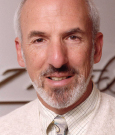Jeffrey L. Wolf, MD, Director of the Myeloma Program at the University of California, San Francisco, formally discussed the ENDEAVOR study at the ASCO Annual Meeting. He commented that the “doubling” in progression-free survival is “impressive” and said that “time will tell if this difference persists for overall survival.”
He said he was “reassured” that the progression-free survival of bortezomib (Velcade)/dexamethasone in ENDEAVOR was consistent with that seen in the PANORAMA trial (8 months). It was also important that prior exposure to bortezomib did not compromise the efficacy of the carfilzomib (Kyprolis)/dexamethasone regimen and, moreover, that for bortezomib-naive patients, median progression-free survival had not been reached.
The greater toxicity in terms of dyspnea, cardiac events, and hypertension with carfilzomib/dexamethasone was expected, he said, and the higher incidence of peripheral neuropathy with bortezomib is “similar to what we were used to seeing before subcutaneous injections and easily explained by the twice-weekly schedule in the 21% of patients who received bortezomib by intravenous bolus.”
Dr. Wolf was impressed that the doubling of the carfilzomib dose did not significantly increase toxicity over that observed in ASPIRE, where the standard dose was used. He suggested, “If 56 mg/m2 is the new optimal dose of carfilzomib, we will have to start looking at this dose in other combinations and watch for additive toxicity.”
New Treatment Landscape
In the “new landscape” of treatment for myeloma patients with one to three relapses, regimens are producing response rates of 75% or higher, with many patients achieving very good partial responses and even stringent complete responses. “We can hope for progression-free survival in this arena to exceed a year and a half, or even 26 months, as seen in ASPIRE,” he said.
“This is a wonderful place to be for our patients, but at what cost?” he asked. He estimated the most effective regimens will cost around $22,000 per month, which (based on trial data) translates into a “cost per progression-free month” ranging from around $1,000 to nearly $2,000.
“If the progression-free survival is good enough and the tail of the curve significant enough, the increased cost may be worth it,” he commented, “and if a regimen is curative in the front-line setting, almost any cost would be acceptable.” But expensive drugs used in unselected patients are causing toxicity and increasing the cost of care, “often with little benefit,” he suggested.
“The costs of these complex regimens are increasing and must be weighed against their performance,” Dr. Wolf concluded. Meanwhile, until this happens, “we will continue to mix and match these drugs, looking for the best combinations that we hope will ultimately cure our patients.” ■
Disclosure: Dr. Wolf reported stock ownership in Celgene; having a consulting or advisory role for Onyx, Amgen, Celgene, and Janssen; receiving speaker’s fees from Millennium; and receiving travel expenses from Celgene, Onyx, Millennium, and Janssen.


